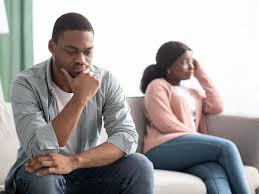
If you are an avid social media user you must have come across ‘The Are We Dating the Same Guy?’ groups. For the uninitiated, these groups, accessible only to women after passing strict vetting checks, serve as platforms for sharing information about men. Admins meticulously review new profiles, rejecting any that appear suspicious or fake.
As per a Guardian report the New York City chapter has 164,000 members, Los Angeles has 79,000, while Toronto and Sydney count 81,000 and 10,000 members, respectively. In the UK, nearly every region has its group. London has a community exceeding 150,000 women. Groups like this are even popping up in Asian countries like India and South Korea.
Although primarily meant to expose unfaithful partners, these groups also serve as a warning system against men who are violent, abusive, or otherwise dangerous.
“The ‘Are We Dating The Same Guy?’ Facebook groups have helped thousands of women globally avoid cheaters, narcissists, and abusers,” one UK-based member told The Guardian.
“The days of men having secret families and repeatedly mistreating women without consequence are over. I don’t even have Facebook, but a month ago, I was looking at the group on my friend’s phone and found out that a man I had been speaking to was actually in jail for manslaughter,” the member added.
Another woman told The Guardian how her sister had posted in the group after feeling uneasy about a man who suddenly cut contact, citing the death of his donkey as the reason. A quick search revealed he never had a donkey, but he did have a fiancée.
“I think spaces like these are essential. They can help women avoid dangerous situations,” she told The Guardian.
In the UK, the Domestic Violence Disclosure Scheme (DVDS), known as Clare’s Law, allows police to share information about an individual’s past abusive or violent behaviour with their current or potential partner. However, there are shortcomings of Clare’s Law, as there is much male violence against women that never reaches the criminal threshold or is not reported to authorities.
Discussions about this scheme are common in these groups, with some women discovering their partners’ criminal backgrounds through Facebook rather than official channels. Despite their benefits, some experts warn that these groups could pose risks, potentially exposing women to retaliation from the men they name.
Potential legal repercussions of such groups
Mark Stephens from Howard Kennedy LLP also raised concerns about potential legal repercussions. He told The Guardian, “There is a defamation risk. Abusive and controlling men are increasingly using defamation laws to silence women who speak about their abuse.”
Some campaigners argue that the very existence of these groups reflects the state’s failure to adequately protect women, leaving them to rely on each other for safety and information.
Karen Ingala Smith, chief executive of the domestic and sexual violence charity NIA, told The Guardian, “One thing that stands out from working with women who have experienced male violence is how they support each other. I’m pleased to see women using technology to strengthen this sisterhood.”
Content by : rapti Upadhayay




